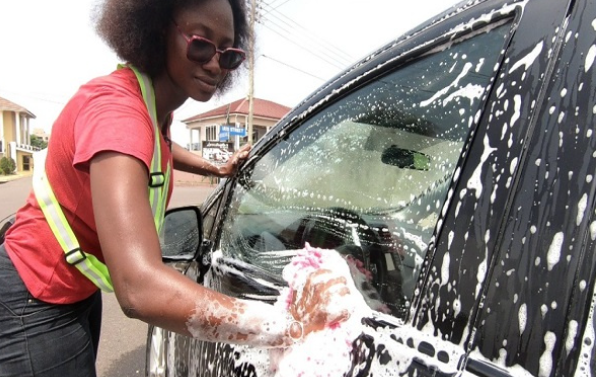Australia is well-regarded for its excellent healthcare system. This means there are plenty of job opportunities for skilled nurses.
If you are from another country, getting a nursing job in Australia could be a wonderful chance to learn from a different healthcare environment and experience the latest in medical technology and practices. However, the process of finding a job and getting visa sponsorship might seem complicated. This guide will explain in detail how to search for and get nursing jobs in Australia for those who need visa sponsorship.
How to Get Registered as a Nurse in Australia
Before you can start working as a nurse in Australia, you need to be registered with the Australian Health Practitioner Regulation Agency (AHPRA). This organization looks after all health professions in the nation.
To apply for registration, you have to:
- Earn an approved nursing qualification, like a 3-year full-time Bachelor of Nursing degree or its equivalent.
- Have recent working experience in nursing that meets the required standards.
- Get a good score on an English language test.
- Meet other important standards, including criminal history, professional insurance, recent work experience, and ongoing professional training.
- Pass a national nursing exam approved by the Nursing and Midwifery Board of Australia.
Once you fulfill all these, you can apply for registration which lets you practice nursing in Australia. You need to have this sorted before you can apply for jobs.
Visa Options for Skilled Nurses Wanting to Work in Australia
After getting your registration, you’ll need the right visa. There are a few different visas for nurses who want to work in Australia:
1. Skilled Independent Visa (Subclass 189)
This permanent visa lets you live and work in Australia forever. To get it, you must score enough points based on skills, age, English level, and work experience, among others. A big plus is that it doesn’t require anyone to sponsor you.
2. Skilled Nominated Visa (Subclass 190)
This visa also lets you stay and work in Australia permanently, but for this one, you need a job offer or a state or territory to nominate you. It’s a bit easier to qualify for because you need fewer points than the Skilled Independent visa.
3. Skilled Regional Provisional Visa (Subclass 491)
With this visa, you can live and work in a regional area of Australia for up to 5 years. You’ll need a sponsorship from a family member living in these areas or be nominated by the state or territory government. Also, this visa can lead to permanent residency eventually.
Each type of visa has its own set of rules. Talking to a visa agent can help you figure out which is the best for you.
How to Find Nursing Jobs with Visa Sponsorship in Australia
There are plenty of job openings for nurses in Australia that come with visa sponsorship for people coming from other countries. Here’s how you can find these jobs:
- Use popular job websites like Indeed, Seek, and LinkedIn and look for postings that mention visa sponsorship.
- Reach out to recruitment agencies that focus on finding jobs for healthcare professionals. They often have connections with employers who are ready to offer sponsorship.
- Check individual hospital and healthcare facility websites because they regularly post about nursing job vacancies.
- Network on LinkedIn with recruiters and join online communities for nurses coming from abroad to get more job info.
- Go to job fairs, conferences, and other professional gatherings in Australia. You can meet recruiters and hear about jobs that aren’t advertised.
- Visit the websites of different states and territories to see if they have skill shortage lists that might offer sponsorship opportunities.
It’s important to be persistent and use all your resources. Don’t just look at job advertisements.
Nursing Roles Commonly Offering Visa Sponsorship in Australia
There are many different nursing roles in Australia that often offer visa sponsorship for overseas applicants. Here we’ll discuss some of the common nursing jobs you can find and give you details like estimated salary and other requirements:
1. Registered Nurse (RN)
Registered Nurses are really needed all over Australia. You can find RN sponsorship opportunities in many settings such as hospitals, aged care, and community health centers. The salary for Registered Nurses can be between AUD 65,000 and AUD 90,000 a year. It can vary based on where you work and your experience level.
2. Enrolled Nurse (EN)
Enrolled Nurses have a key role in patient care, often working under Registered Nurses. There are sponsorship chances for EN roles particularly in aged care, hospitals, and primary care settings. These nurses usually earn between AUD 50,000 and AUD 70,000 annually.
3. Nurse Practitioner
Nurse Practitioners have advanced skills, with master’s degrees, and they can diagnose illnesses, prescribe medications, and manage care by themselves. You can find sponsorship opportunities for NPs in places like hospitals, specialist clinics, and more rural healthcare centers. They earn between AUD 100,000 and AUD 150,000 a year on average.
4. Critical Care Nurse
Nurses who work in Critical Care give intense attention and treatment to patients who have severe, life-threatening illnesses. These nurses usually find jobs in emergency rooms and critical care units. Big hospitals and facilities that focus on specific medical areas often offer to sponsor nurses for these jobs. Usually, nurses in Critical Care earn between AUD 80,000 and AUD 110,000 each year.
5. Mental Health Nurse
Mental Health Nurses help patients with mental health issues. They might give counseling, therapy, and help manage medicines. There are often sponsorship opportunities for nurses in this field at places like psychiatric hospitals, mental health centers, and places that help people recover from different conditions. Mental Health Nurses generally earn between AUD 70,000 and AUD 100,000 annually.
6. Midwife
Midwives are professionals who take care of women when they are pregnant, during birth, and after they have their babies. They can get jobs that offer sponsorship at places like maternity hospitals, birthing centers, and health services in the community. Midwives usually earn from AUD 75,000 to AUD 100,000 a year.
7. Nurse Educator
Nurse Educators teach and train people who are learning to be nurses or who are already nurses. They work in places like universities, healthcare organizations, and schools that offer vocational training. You can often find sponsorship for this type of job. Nurse Educators can expect to earn from AUD 80,000 to AUD 110,000 each year.
With so many different kinds of nursing jobs available that offer sponsorship, Australia is an appealing place for nurses from other countries looking for good careers in healthcare. There’s a range of career paths to check out, whether you’re into taking care of patients in critical situations, mental health, or the education side of nursing.
5 Popular States for Nursing Jobs in Australia
Australia needs more healthcare workers, and some states are particularly good places for nurses to look for jobs. Let’s take a look at five states in Australia that are great for nurses to work in:
1. New South Wales (NSW)
In New South Wales, especially in Sydney, there are many opportunities for nurses. The state has big hospitals, places for medical research, and community health centers. Nurses can find all kinds of jobs in NSW, including in areas like general patient care, care for the elderly, mental health, and community nursing.
2. Victoria
Victoria is another excellent place for nurses, known for its cultural life and strong health services. Melbourne, the capital of Victoria, is home to leading hospitals, special care centers, and clinics. Nurses here have good chances to work in various specialties and places.
3. Queensland
Queensland is popular not just for its beaches and tropical weather but also for nursing jobs. Cities like Brisbane and the Gold Coast offer jobs in big healthcare places, aged care, and services for rural health. Nurses here can enjoy diverse and active work environments.
4. Western Australia (WA)
Western Australia is an appealing place for nurses who want to work in both city settings and more isolated areas. Perth, the state’s capital, has big medical centers and hospitals that focus on teaching, while the rural areas offer unique experiences in healthcare in remote places.
5. South Australia (SA)
Known for its relaxed lifestyle and wineries, South Australia has promising job opportunities for nurses. In Adelaide, the state’s capital, there are top healthcare institutions, research centers, and specialty hospitals. Nurses have the chance to advance in fields like critical care, cancer care, and care for people at the end of their lives.
Australia is a country with varied environments, a strong healthcare system, and it takes good care of its patients. This makes it a place full of chances for nurses looking for rewarding careers. No matter if you prefer the busy city life or the quiet of the countryside, each state offers unique benefits and experiences for nursing professionals.
Essential Tips for Getting a Nursing Job in Australia
Getting a job with a visa sponsorship can be tricky. Here are some essential tips to help you get hired as a nurse in Australia:
- Make sure your nursing qualifications are checked and approved by the Australian Nursing and Midwifery Accreditation Council, to see if they’re right for Australia.
- Take exams like IELTS and OET as early as you can to register as a nurse.
- Show off your specific nursing skills, experience, and the variety of patients you’ve treated on your resume and in interviews.
- Make sure you have great references from past employers that talk about how good you are at your job.
- In interviews, be clear about why you want to move to Australia and work there.
- Be ready to work in more rural places, where it’s often easier to get sponsorship for a visa.
- Think about starting with a short-term job contract to begin working, and then look for a permanent job.
- Be patient and adaptable. It can take time to get through the visa process and find the right job.
If you’re ready to work hard and have patience, you can find your dream nursing job in Australia. The opportunities are there for the taking.
Nursing Recruitment Agencies That Help With Visa Sponsorship
If you’re looking for a nursing job in Australia, it might be a good idea to get in touch with nursing recruitment agencies. They have connections with employers who are willing to sponsor nurses from other countries.
Here are some of the best agencies to consider:
- Momentum Health
- HealthStaff Recruitment Australia
- Healthcare Australia
- NurseWest
- Absolute Health Care
- Mediserve Nursing
- Global Health
- HealthX
These agencies have a great knowledge of the job market for nurses and can help you find a job that’s perfect for what you know and can do. They will support you in many ways, like checking your skills, helping you register, handling visa paperwork, and making plans to move. Choosing a trustworthy agency to help with your job search saves you time and trouble.
Tips For Getting Used to Nursing in Australia
After you land your nursing job in Australia, there are things you can do to make your move and start of work go smoothly. Check out these helpful tips:
- Find out lots about the place you’ll be working, like what medical areas it’s good at, what equipment it has, and what their work culture is like.
- Get to know the common medical procedures, the names of drugs, how they do documentation, and what technology you’ll be using at work.
- Learn about the laws and rules for clinical practice, keeping patient info safe, making sure the workplace is safe, and any other regulations in the part of Australia where you’ll be.
- Understand the health needs of Aboriginal and Torres Strait Islander peoples and respect their culture.
- Meet and talk with nurses from other countries who now work in Australia, share experiences, and make friends for support.
- Join an orientation program your work offers to learn their rules and what they expect from you.
- Work alongside nurses who have been there a while to learn how they do things and what they expect.
- Always ask when you’re not sure, be open to feedback, and take chances to keep learning.
- Remember that getting used to a new job in a new place takes time. Keep a good attitude!
With the right mindset and preparedness, nurses from other countries can fit into Australia’s healthcare system well. There may be tough spots, but there are also lots of good points to this change in your career.
Good Things About Being a Nurse in Australia
Nurses in Australia enjoy quite a few benefits. For one thing, they get paid well – in fact, nurses in Australia are some of the best-paid in the world. Then, they get chances to work with the latest medical tech in top-notch hospitals.
Working in such a good healthcare system can make a nurse’s skills and resume look even better. Nurses also get lots of chances for extra learning and to become experts in their fields. Life in Australia is high quality, with a very nice balance between work and having fun. Nurses get 4 weeks’ vacation every year, good pay, extra money for overtime and different shifts, help with childcare, and contributions to their retirement savings.
Besides, if you live in Australia for good, the country’s healthcare covers you. With respected hospitals, decent nurse-to-patient numbers, chances to move up in your career, and a great lifestyle, Australia is a top choice for nurses.
Finishing Thoughts
For registered nurses coming from other countries, Australia can be a great place to grow their careers and learn new ways of doing things. But getting a job as a nurse here needs work and determination because of the registration and visa rules.
There’s a lot of chances for foreign nurses in various healthcare areas if you’re willing to go for it. With all the help you can get, showing off what you can do, and being flexible, your nursing career dreams in Australia can come true. It takes patience and you have to stick to it, but the experience you gain will be priceless.






